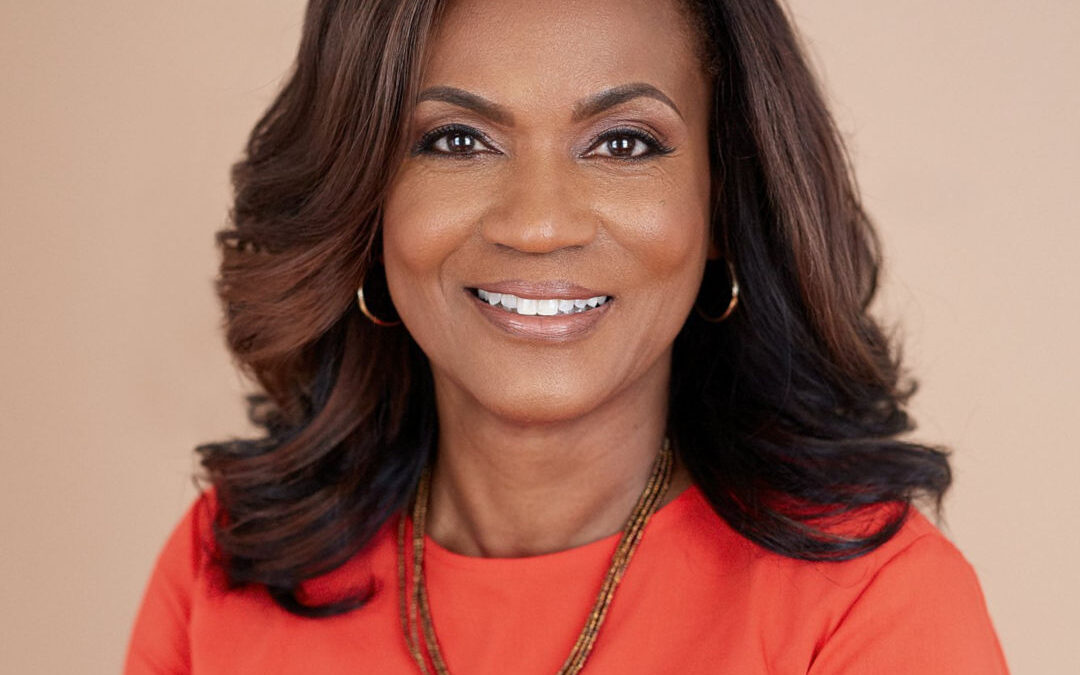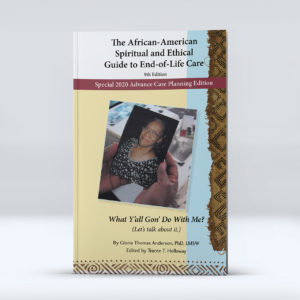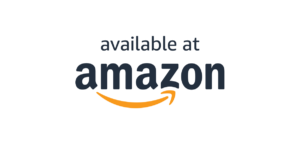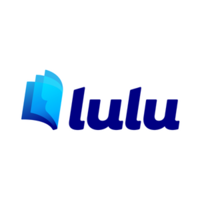by Edward Sylvan, CEO of Sycamore Entertainment Group
There are many stories that I’ve been made aware of about how my book has directly helped patients and families. One particular email I received came from a nurse who had purchased a copy of my book, The African-American Spiritual and Ethical Guide to End-of-Life Care: What Y’all Gon’ Do with Me? Using my book as a guide, she was able to start a conversation with her mother who previously refused to talk about death or dying. She said the book was easy to understand, which made it more comfortable for her mother to talk about what her wishes were before her mother passed away. She told me how peaceful she felt knowing that her mother’s wishes at the end of her life were honored. Her email expresses a shared sentiment across all the stories. It’s stories like this that help to bridge those disparity gaps and create more positive end-of-life experiences.
As part of my series about “authors who are making an important social impact”, I had the pleasure of interviewing Dr. Gloria Thomas Anderson. She is an Assistant Professor of Social Work at North Carolina State University, and the author of a CDC-recommended book The African-American Spiritual and Ethical Guide to End-of-Life Care: What Y’all Gon’ Do With Me? which helps families have the conversation about matters of death and dying. Her academic research focuses primarily on Advance Care Planning, End-of-Life Care and healthcare inequities among African Americans. Dr. Anderson is also the CEO and founder of Heart Tones™, an inspirational writing ministry which is celebrating its 35th anniversary. Heart Tones™ provides educational resources, workshops, gift products, and inspirational books related to healthcare education, life purpose, and relationships, such as those with family and caregivers.
Thank you so much for joining us in this interview series! Before we dive into the main focus of our interview, our readers would love to “get to know you” a bit better. Can you tell us a bit about your childhood backstory?
I was always a studious, creative child and a high-achiever who kind of stomped to the beat of my own drum. I loved to dance, wrote poetry (still do) and sewed my own clothes to create styles I favored. As the oldest of four children, I was usually tasked with minding my younger siblings when my parents were occupied or busy. So, I learned at a young age how to care for others, how to use my creativity, and how to navigate the world without losing sense of who I was at my core. My mother was a businesswoman, a hairstylist with her own beauty salon, and my father retired from the postal service. We were raised respectfully under the watchful eyes of church and elders surrounded by family and friends. Although we didn’t have luxury, we were rich with love and there was always wonderful home-cooked food on the table. It was a childhood not without its issues, but it certainly helped shape me into the person that I am now. My childhood gave me the foundation for the work that I do now as well in helping others plan ahead to leave this world in a way they prefer, and to leave a legacy they desire for those they love.
When you were younger, was there a book that you read that inspired you to take action or changed your life? Can you share a story about that?
The book that inspired me most in my younger years was the Holy Bible — and even today, it continues to be a source of wisdom, inspiration, and guidance for my life. Also, a book called My Utmost for the Highest by Oswald Chambers inspired me to see beyond what I see with my natural eyes and to see life through my spiritual eyes. So many stories I could tell! But one in particular comes first to my mind because it was indeed life-changing, and that is when I had a near-death experience… I had experienced a sudden, life-threatening illness and nearly died. I remember lying in the hospital bed, barely able to move, yet holding my little purse-size bible open to Isaiah 53:5 and I Peter 2:24. Those Bible scriptures of healing and restoration gave me the inner strength I needed to hold to my faith and see myself well again. My recovery from that experience has been called a miracle by the doctors and medical staff. I know that it was a miracle and my life has never been the same again.
Can you share the funniest or most interesting mistake that occurred to you in the course of your career? What lesson or take away did you learn from that?
When I was starting my career in social work education, I had the opportunity to co-teach with a seasoned full professor. She had so much confidence and always seemed very relaxed in her teaching style — kind of casual and comfortable in her mannerisms. I mostly observed during that first semester, until one day she asked if I would teach the course for a few days because she would be out of town. As a newbie in the field, I was so nervous. I remember trying my best to imitate her style and feel comfortable, but the students caught on to my act quickly. Someone said aloud, “Ms. Anderson, we want you to be yourself. We won’t bite!” We shared a laugh, and I said something like, “She makes this look so easy!” I decided at that moment to just be myself and our class sessions went well from that point forward. When the professor returned later that week, the students said very positive things about me and she commended me for doing a good job.
Since that time, I now have more than 13 years of university-level teaching under my belt. I learned a valuable lesson: no one can be a better me than me. We are all uniquely who we are and it’s so much easier to be an authentic version of you than a poor imitation of someone else.
Can you describe how you aim to make a significant social impact with your book?
I have written several published books and book chapters, but the primary aim for my book The African-American Spiritual and Ethical Guide to End-of-Life Care: What Y’all Gon’ Do with Me? is to be a resource that helps people of color make informed healthcare decisions related to advance care planning and end-of-life (EOL) care options. Research shows that minoritized groups receive lower quality of health care than non-Blacks. Yet, African Americans, in particular, are less likely to have conversations about health care issues due to cultural, generational and spiritual beliefs and values, and the lasting impact of historical experiences. It is a disparity that I hope to close the gap on through my book and the workshops I offer for advance care planning, or ACP. ACP is the process of documenting and making your wishes known in advance in the event that you’re not able to speak for yourself due to a life-threatening illness or accident.
My EOL book is on the recommended reading list of the Centers for Disease Control and Prevention (CDC) as an ACP resource that helps get the conversation started. For most people, simply getting the conversation started about any matters of death and dying is the hardest part. I wrote The African-American Spiritual and Ethical Guide to End-of-Life Care: What Y’all Gon’ Do with Me? book to encourage African Americans to develop a formal health care plan, complete advance care directive documents, and increase their overall knowledge of Advance Care Planning and End-of-Life Care in order to advocate and navigate the challenging matters related to healthcare. My hope for the book as a significant social impact is to continually reduce racial disparities in health care through education and empowerment that leads to higher quality of care among African Americans at the end of life.
Can you share with us the most interesting story that you shared in your book?
I share the story of one of my relatives who was rushed to the hospital with a serious illness. She wasn’t ready to deal with the business of her healthcare issues. Her memory was deteriorating and she was calling us by other people’s names without knowing. Since 1991, the Federal Patient Self-Determination Act has required all healthcare providers to ask if you have an “advance directive”, or an AD, and if you don’t, they must give you the choice to complete one. Well, my relative became very upset when the nurse asked her about it. She shouted at the nurse and us, “What y’all tryin’ to do with me? Ain’t nobody gon’ put me in no nursing home!” The nurse was shocked and looked bewildered, but I knew that my relative just did not understand what an advance directive was. Her own historical knowledge and background of seeing inequitable care in medical settings was the context for her reaction. After she calmed down, I was able to explain to her that by completing advance care documents, she was taking control of her own healthcare by letting the doctors and her family know what she would want if she was unable to speak for herself due to serious illness. After that incident with my relative, I started asking other people, including my own parents, about their advance healthcare plans and found that most had not ever thought or talked about it at all.
What was the “aha moment” or series of events that made you decide to bring your message to the greater world? Can you share a story about that?
My “aha moment” occurred when I was an intern at the Veteran Affairs (VA) Hospital, working with dialysis patients, mostly men of color, and the hospital had started a push on Advance Directives. I was asked to share this option with the patients, but their responses weren’t what I expected. Some of them told me of personal experiences of discrimination and disparity, stating that non-Black veterans were receiving kidney transplants more frequently than they were. Issues of mistrust and mistreatment caused most of them to refuse to complete the forms. I later decided to complete my Master’s thesis research on that topic and discovered that what they were saying was actually well-documented in the literature. Healthcare disparities and inequitable treatment was happening throughout many healthcare systems in the U.S., not only at the VA. I became passionately committed to bringing the message of healthcare advocacy and equity to the greater world, starting with my own family, community, and people of color who bear the brunt of these inequitable disparities.
Without sharing specific names, can you tell us a story about a particular individual who was impacted or helped by your cause?
There are many stories that I’ve been made aware of about how my book has directly helped patients and families. One particular email I received came from a nurse who had purchased a copy of my book, The African-American Spiritual and Ethical Guide to End-of-Life Care: What Y’all Gon’ Do with Me? Using my book as a guide, she was able to start a conversation with her mother who previously refused to talk about death or dying. She said the book was easy to understand, which made it more comfortable for her mother to talk about what her wishes were before her mother passed away. She told me how peaceful she felt knowing that her mother’s wishes at the end of her life were honored. Her email expresses a shared sentiment across all the stories. It’s stories like this that help to bridge those disparity gaps and create more positive end-of-life experiences.
Are there three things the community/society/politicians can do to help you address the root of the problem you are trying to solve?
Yes, indeed! Addressing the root of the problem begins with dismantling systemic racism that permeates every level of societal life, including inequitable treatment in the healthcare arena. It may sound ironic, but the best way to address this barrier to equity is for everyone to look within and examine their own beliefs and values. These internal beliefs and values are often the drivers of any behavior towards those who are different from themselves. We are all products of our familial and social environments, holding unconscious biases that can both impact and influence how we see and treat different others. Only you can know what’s in your own heart. However, others can know too by what comes out of your heart in your words, actions, and deeds.
So, to simply state three things that these people groups can do to help address the root problem of healthcare disparity, particularly as it relates to end-of-life care are:
1 . Examine one’s own beliefs, values and attitudes.
Ask yourself: “What is in my heart?”
2. Provide service with dignity to everyone.
Ask yourself: “Am I treating this person as I would want to be treated?”
3. Use your power and voice to speak out against injustice and advocate for equity.
Ask yourself: “What can I do to make positive change?”
How do you define “Leadership”? Can you explain what you mean or give an example?
I define leadership as “being able to direct the course of something that inspires and recognizing the value of all who are a part of that something.” To me, real leadership is servant-oriented, not self-oriented. A true leader leads by example — humble, respectful and caring. Holding a position of power comes with great responsibility. A person who is an impactful leader of positive influence recognizes that every person, regardless of their stature or title, brings something to the table and deserves to be treated with respect and dignity.
What are your “5 things I wish someone told me when I first started” and why. Please share a story or example for each.
Well, it’s not so much that I wish someone had told me, but more so what I’ve learned and what I’ve shared with my own daughters, who are now both grown women with their own families and careers.
1. Your experiences may shape your life but they also help you find your purpose in life.
Oftentimes people look in a different direction for their purpose than what is right in front of them. Our purpose is often tied to our own experiences and our natural abilities. Once we know our purpose, we can then undergird it with added training and skills, but generally our purpose is very close to us.
2. Who you are is not dictated by what you do.
I wrote about this in my book, Passion For Your Purpose: Discovering Peace, Direction, and Balance in Your Life, that the titles we hold (as Mom, as Leader, as Wife, etc.) do not define who we are as ourselves. If you can be yourself and do what you love, that is a blessing, but above all else, be your authentic self.
3. Non-conformity is essential to living your God-given purpose with confidence and mental fortitude.
One of my favorite scriptures is Romans 12:2, and it says, “Do not conform to the pattern of this world, but be transformed by the renewing of your mind.” If you have a strong sense of who you are, then you’re less likely to be swayed away from your purpose.
4. Your dreams may be delayed, but “delay” doesn’t necessarily mean “denied.”
I completed both my Masters and Ph.D. later in my life, after I’d raised my daughters, and with many years of life then behind me. In both programs, I finished at the top of my class, and I have since been fulfilling delayed dreams to help others live purposeful lives.
5. While building your life, take time to enjoy it, too.
I often say, “Life is only experienced in the NOW moments of today.” I’ve learned that it’s important to have balance and boundaries, and to take time to appreciate the gift of having family and friends.
Can you please give us your favorite “Life Lesson Quote”? Can you share how that was relevant to you in your life?
“Be the change you wish to see in the world” — Mahatma Gandhi
This quote is relevant to my life in that I believe that in order for things to be different in the world from what is, I must envision it as I want to see it become. I have learned that I cannot change other people or life circumstances which are often beyond my control, but what I can change is my response to them. By being the change I want to see, I am able to live a more purposeful life with meaningful significance by helping others through the work of my hands and my heart.
Is there a person in the world, or in the US with whom you would like to have a private breakfast or lunch with, and why? He or she might just see this, especially if we tag them. 🙂
Oprah Winfrey! She’s one of my SHEROs!
How can our readers further follow your work online?
Readers can visit my company website at https://hearttones.com and find the resource book and workshop information at www.eolacp.org. You can follow our messages and educational content at @hearttonesGTA on YouTube, Facebook, Instagram, Twitter and Pinterest, or follow me on Instagram @drgloriathomasanderson.
This was very meaningful, thank you so much. We wish you only continued success on your great work!
About The Interviewer: Growing up in Canada, Edward Sylvan was an unlikely candidate to make a mark on the high-powered film industry based in Hollywood. But as CEO of Sycamore Entertainment Group Inc, (SEGI) Sylvan is among a select group of less than ten Black executives who have founded, own and control a publicly traded company. Now, deeply involved in the movie business, he is providing opportunities for people of color.
In 2020, he was appointed president of the Monaco International Film Festival, and was encouraged to take the festival in a new digital direction.
Raised in Toronto, he attended York University where he studied Economics and Political Science, then went to work in finance on Bay Street, (the city’s equivalent of Wall Street). After years of handling equities trading, film tax credits, options trading and mergers and acquisitions for the film, mining and technology industries, in 2008 he decided to reorient his career fully towards the entertainment business.
With the aim of helping Los Angeles filmmakers of color who were struggling to understand how to raise capital, Sylvan wanted to provide them with ways to finance their creative endeavors.
At Sycamore Entertainment he specializes in print and advertising financing, marketing, acquisition and worldwide distribution of quality feature-length motion pictures, and is concerned with acquiring, producing and promoting films about equality, diversity and other thought-provoking subject matter which will also include nonviolent storytelling.
Also in 2020, Sylvan launched SEGI TV, a free OTT streaming network built on the pillars of equality, sustainability and community which is scheduled to reach 100 million U.S household televisions and 200 million mobile devices across Roku, Amazon Fire TV, Apple TV, Samsung Smart TV and others.
As Executive Producer he currently has several projects in production including The Trials of Eroy Brown, a story about the prison system and how it operated in Texas, based on the best-selling book, as well as a documentary called The Making of Roll Bounce, about the 2005 coming of age film which starred rapper Bow Wow and portrays roller skating culture in 1970’s Chicago.
He sits on the Board of Directors of Uplay Canada, (United Public Leadership Academy for Youth), which prepares youth to be citizen leaders and provides opportunities for Canadian high school basketball players to advance to Division 1 schools as well as the NBA.
A former competitive go kart racer with Checkered Flag Racing Ltd, he also enjoys traveling to exotic locales. Sylvan resides in Vancouver and has two adult daughters.
Sylvan has been featured in Forbes, the Wall Street Journal, the New York Times and has been seen on Fox Business News, CBS and NBC. Sycamore Entertainment Group Inc is headquartered in Seattle, with offices in Los Angeles and Vancouver.




